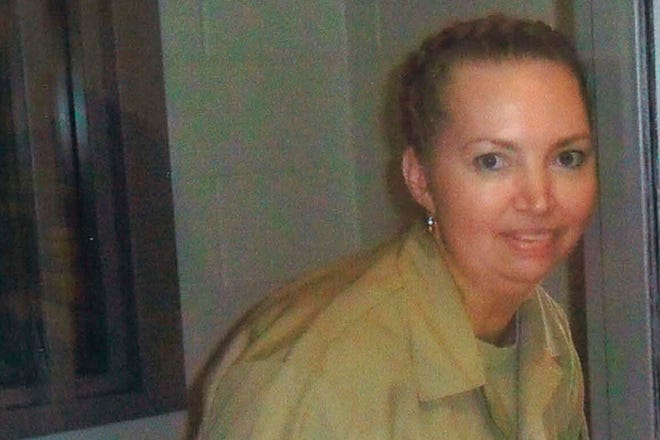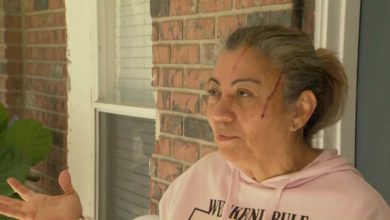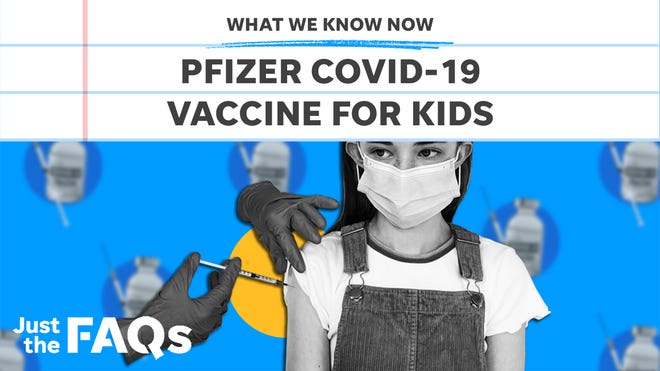
COLUMBUS – If you don't want a COVID-19 shot, several Republican lawmakers want to make sure you don't face any penalties because of that decision.
House Bill 248, introduced Wednesday, would allow Ohioans to decline a COVID-19 shot – or any other vaccine – because of religious reasons, medical reasons or natural immunity.
The proposal would prevent anyone who chooses not to be vaccinated from facing discrimination, being denied services or forced to follow a requirement that they wear masks or other penalties financial or social from businesses, schools or government.
“This is a matter of freedom,” state Rep. Jennifer Gross, R-West Chester, said of her bill. “The purpose of this legislation is to allow people to choose to do what they feel is best for their own body and protect individuals from any consequences or hardships for choosing one way or the other.”

Gross' bill is backed by Ohio Advocates for Medical Freedom, an anti-vaccination group that advocates for the right to choose or refuse any medical treatment or procedure. The bill also is supported by 15 Republican lawmakers, several of whom told reporters they would forgo the shot or wait to get one.
Gross, a nurse practitioner who said she's pro-vaccine, told the Dayton Daily News that she would wait to get the COVID-19 shot, adding “I just want to watch it for a couple of years."
The concept isn't uniquely Republican, though. A Democratic lawmaker in Rhode Island introduced a similar proposal to prevent vaccine discrimination, the Associated Press reported.
A push against vaccine mandate
Gross' bill, called the "Vaccine Choice & Anti-Discrimination Act," is the latest effort from Ohio lawmakers to push back against requiring vaccines.
Rep. Al Cutrona, R-Canfield, recently proposed a ban on "vaccine passports," a record that proves individuals received the COVID-19 vaccine to enter an establishment or travel.
State law already allows students to forgo vaccines for religious or medical reasons, but previous attempts to expand those exemptions to adults have failed.
In 2019, lawmakers introduced a proposal that would have prevented employers from firing, refusing to hire or otherwise discriminating against employees who weren't vaccinated. House Bill 268, backed by lawyer Robert Kennedy Jr., never received a hearing.
Throughout the pandemic and vaccine rollout, Gov. Mike DeWine has encouraged Ohioans to receive COVID-19 shots, even getting his vaccine on camera, but has made clear the vaccine isn't mandatory.
DeWine reiterated Monday: "We have no plans to develop a vaccine passport."
The federal government isn't setting one up either, White House press secretary Jen Psaki told reporters Tuesday. But it is assisting businesses and nonprofits who want to create their own to protect Americans' privacy and avoid discrimination.
"The government is not now, nor will we be supporting a system that requires Americans to carry a credential," she said. "There will be no federal vaccinations database and no federal mandate requiring everyone to obtain a single vaccination credential."
Can states legally force residents to get vaccines? A 1905 U.S. Supreme Court case upheld Cambridge, Massachusett's ability to enforce a smallpox vaccine mandate.
It's not clear whether the three COVID-19 vaccines, all approved via the U.S. Food and Drug Administration's emergency use authorization, could be required in that same way.
As of Tuesday, more than 3.7 million Ohioans have received their first COVID-19 dose, representing about 32.3% of the state's population. Of those, 2.2 million Ohioans or 19% of the state have been fully vaccinated.
Many more Ohioans would need to obtain COVID-19 shots to achieve herd immunity via vaccination, scientists say, though the exact percentage isn't clear. Dr. Anthony Fauci told the New York Times that the range was somewhere between 70% and 90%.
Source link








